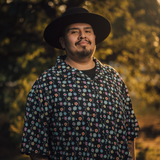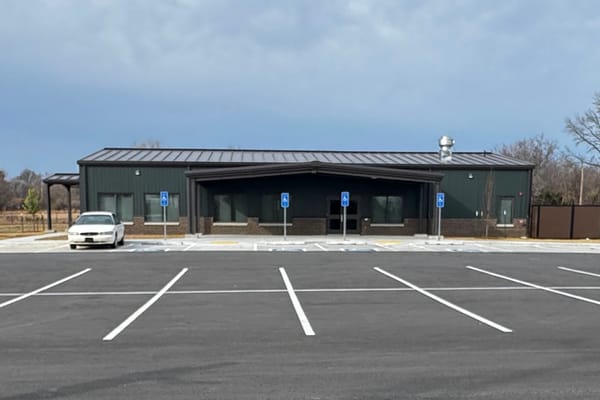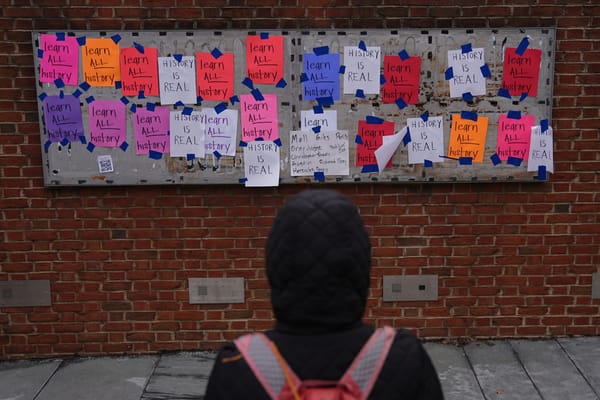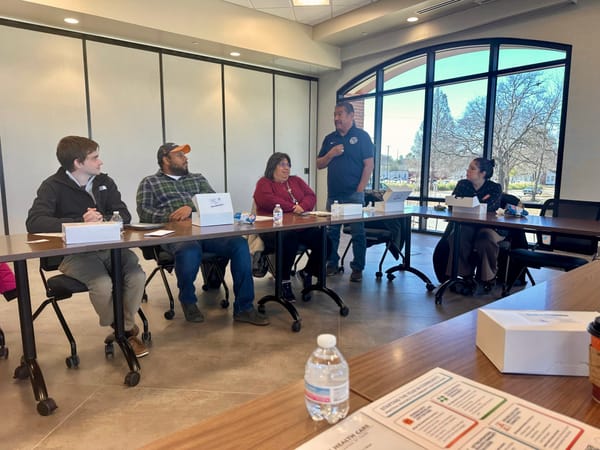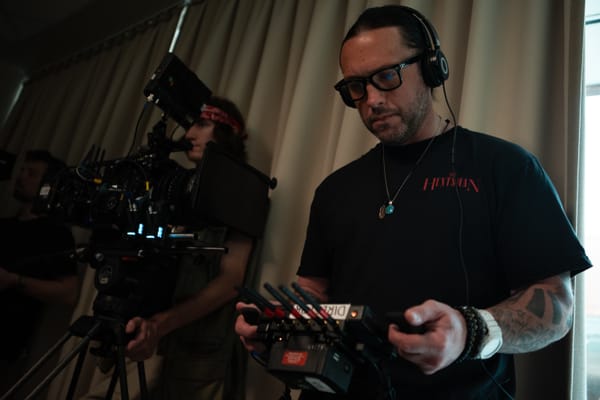“We are still here” Muscogee youth witness history at Council Oak Tree
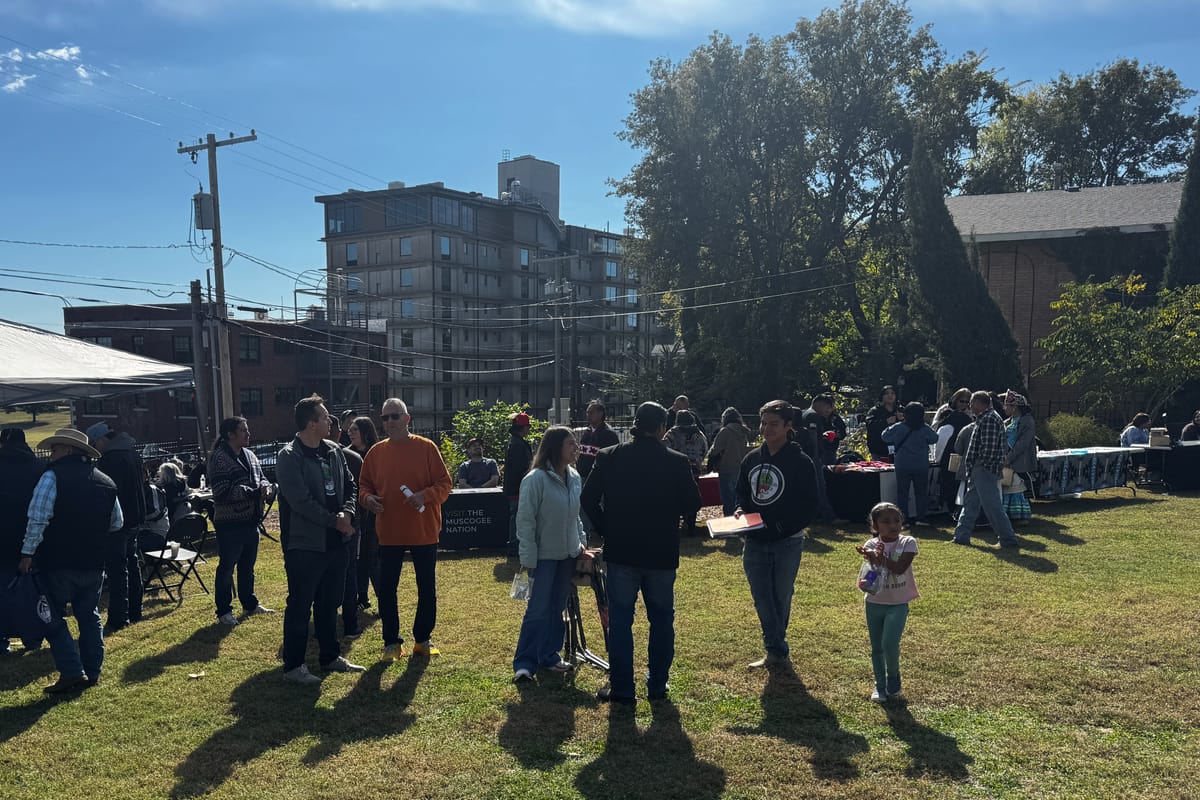
(MUSCOGEE RESERVATION) On the grounds where Muscogee ancestors placed the coals of their sacred fire nearly 200 years ago, hundreds gathered on the morning of Saturday, Nov. 1, to witness a historic moment: the official return of the Council Oak Tree Park and Stickball Park to the Muscogee Nation.
The Council Oak Tree is one of the most significant tribal landmarks in the region. Following forced removal from Alabama in 1836, the people of the Locv Pokv Tvlse Tribal Town placed the coals and ash of their sacred fire at the base of this oak to designate the spot as the community’s new Cuko Rakko (ceremonial ground). Eventually, the Muscogee word Tvlse, meaning “old town,” was transliterated and became the name of the city of Tulsa.
While the tree has stood as a symbol of survival and continuity for generations of Muscogee people, the land on which it stands (at present-day 18th and Cheyenne in Tulsa) was distributed during the allotment process, then purchased and sold by developers multiple times over the years. The City of Tulsa eventually took ownership of the park in 1974.
After years of community efforts to safeguard the park and its sacred tree, the historic moment finally arrived during the Council Oak Tree Land Transfer & Repatriation Ceremony. The land return follows a commitment made last year by former Mayor G.T. Bynum and completed under Mayor Monroe Nichols to restore stewardship of one of the most sacred sites in Muscogee history.
During the ceremony, Principal Chief David Hill emphasized the historic weight of the land’s return and the importance of acknowledging the Muscogee ancestors’ survival and perseverance. In an interview following the event, Hill said the day represented a major milestone for the Nation.
“It’s a big day, especially having the land transfer,” he said. “Tulsa wouldn’t be here if it wasn’t for us. Just one person on that Trail is the reason one of us is here today. That same blood that flowed through their veins flows through ours.”
Hill noted the high turnout, especially the presence of many young people.
“They are the future generation,” he said. “They need to understand the history of who we are and where we come from. It’s in their hands after we leave.”
Lakota actor and cultural advocate Mo Brings Plenty, who traveled to Tulsa for the ceremony, said the land transfer reflects a meaningful step toward recognizing Indigenous stewardship across the country.
“This land is our grandmother. It holds the knowledge and the teachings that get us closer to the Creator,” he said. “What Tulsa is doing is not just good for the Muscogee Nation; it’s good for their spiritual destiny as well.”
He described the event as “a step toward humanity and a huge step toward coexistence,” adding that he hopes young Native people find pride in who they are.
Amanda Swope, Tulsa’s Director of Tribal Partnerships & Policy, also spoke about the importance of the day, emphasizing that the land transfer is an intentional acknowledgement of Tulsa’s origins.
“It’s a historic day that represents an awakening,” Swope said. “The Nation is not only the namesake of our city, but its foundation.”
Swope said she hopes Muscogee youth who attended the event will recognize the significance of the moment as they grow into future leaders. “I hope they see this as central to their purpose and think about how they can serve their people.”
As the ceremony continued, elders spoke about the importance of remembering who the Muscogee people are and what the tree represents. Throughout the ceremony, the Council Oak Tree stood as a living reminder of all that has happened since 1836: the forced removal, the rebuilding of community, the struggles to preserve language and ceremony, and, finally, the reclamation of a sacred space.
When the final signatures were made and the deed was placed in Muscogee hands, many in the crowd felt the significance of the moment. The land that had once sheltered their ancestors was being entrusted to them once more. The community shared a meal, stories, laughter, and the warmth of a day that, for many, felt like healing.
On this historic day, beneath a tree that has watched over generations, the Muscogee Nation stood together in pride and promise, reconnecting with land, history and identity in a way that will echo for generations to come.

